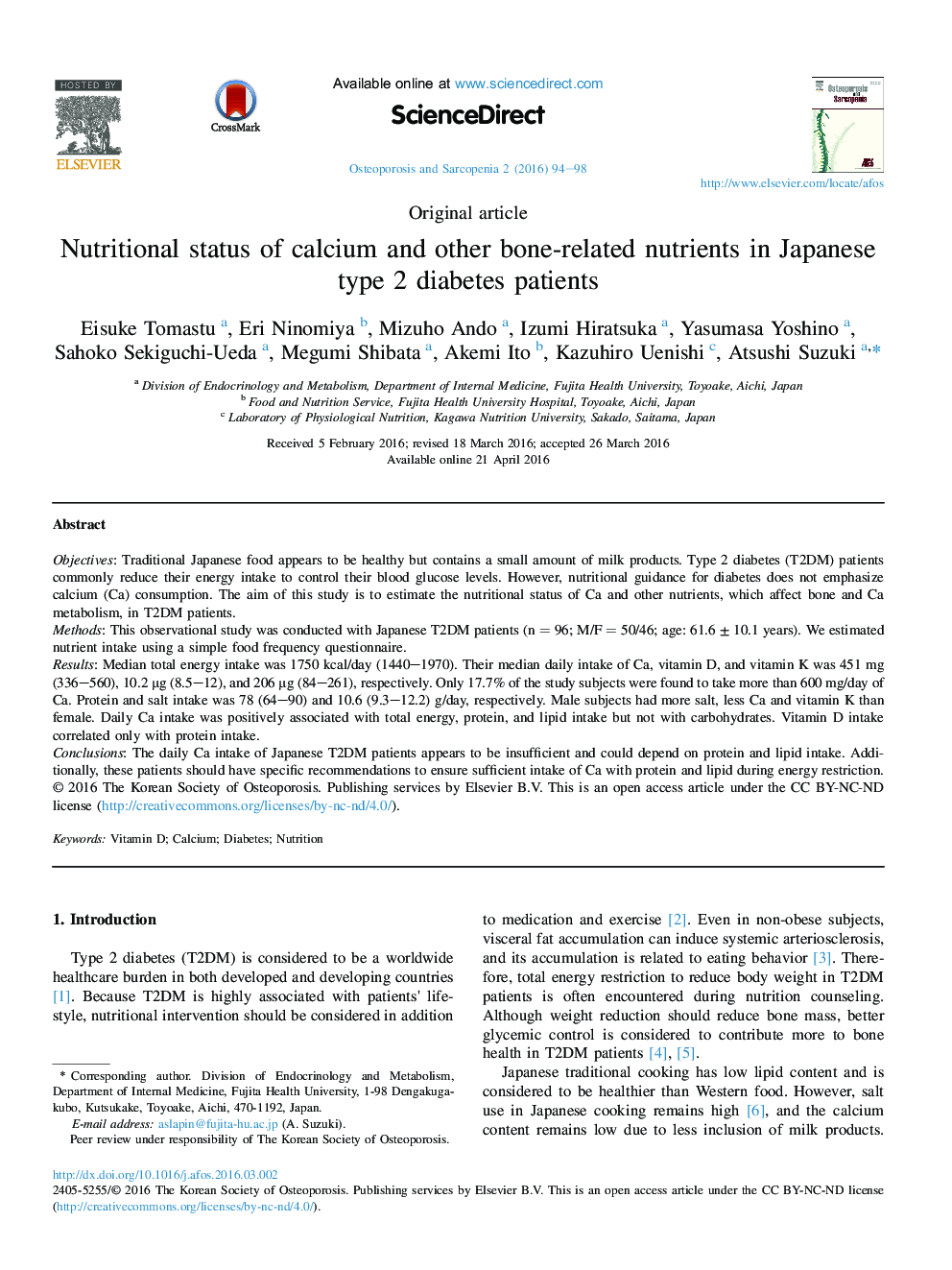| Article ID | Journal | Published Year | Pages | File Type |
|---|---|---|---|---|
| 3277907 | Osteoporosis and Sarcopenia | 2016 | 5 Pages |
ObjectivesTraditional Japanese food appears to be healthy but contains a small amount of milk products. Type 2 diabetes (T2DM) patients commonly reduce their energy intake to control their blood glucose levels. However, nutritional guidance for diabetes does not emphasize calcium (Ca) consumption. The aim of this study is to estimate the nutritional status of Ca and other nutrients, which affect bone and Ca metabolism, in T2DM patients.MethodsThis observational study was conducted with Japanese T2DM patients (n = 96; M/F = 50/46; age: 61.6 ± 10.1 years). We estimated nutrient intake using a simple food frequency questionnaire.ResultsMedian total energy intake was 1750 kcal/day (1440–1970). Their median daily intake of Ca, vitamin D, and vitamin K was 451 mg (336–560), 10.2 μg (8.5–12), and 206 μg (84–261), respectively. Only 17.7% of the study subjects were found to take more than 600 mg/day of Ca. Protein and salt intake was 78 (64–90) and 10.6 (9.3–12.2) g/day, respectively. Male subjects had more salt, less Ca and vitamin K than female. Daily Ca intake was positively associated with total energy, protein, and lipid intake but not with carbohydrates. Vitamin D intake correlated only with protein intake.ConclusionsThe daily Ca intake of Japanese T2DM patients appears to be insufficient and could depend on protein and lipid intake. Additionally, these patients should have specific recommendations to ensure sufficient intake of Ca with protein and lipid during energy restriction.
